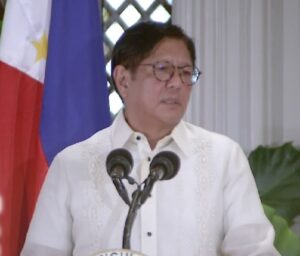MANILA, Philippines – The devastating impact of alleged corruption within infrastructure projects is being acutely felt in the education sector, with a recent admission by the Department of Education (DepEd) revealing that only 22 classrooms were constructed nationwide this year. This stunning shortfall comes as the Philippines faces a critical deficit of over 150,000 classrooms, raising serious questions about the misallocation of public funds amidst high-profile corruption scandals, particularly those linked to multi-billion-peso flood control projects.
The crisis was highlighted during an awards ceremony at Malacañan Palace, where President Bongbong Marcos honored outstanding teachers, soldiers, and police officers. The event served as a stark backdrop to the administration’s battle against widespread graft.

A Crisis of Integrity vs. A Crisis of Classrooms
Speaking at the ceremony, President Marcos acknowledged the deep public anger and skepticism surrounding government integrity, specifically citing the outrage over corruption tied to flood control projects. However, he presented the awardees—four teachers, three soldiers, and three police officers recognized as “Outstanding Filipinos” by a major bank for their contributions to their professions and communities—as proof that honor and integrity remain alive within the Filipino spirit.
“In the midst of the nation’s anger over corruption, these individuals prove that dignity and integrity endure among Filipinos,” the President stated. He framed every honest teacher, soldier, and police officer as a victory against the cynicism and corruption plaguing the country, calling them an inspiration for the continuous, difficult task of cleansing the government.
However, the ceremonial celebration was immediately overshadowed by the sobering reality shared by the DepEd. The minimal progress in infrastructure development has left the education sector in a dire state.
A government official lamenting the situation reportedly stated the stark reality: “It seems they became so enamored with the flood control [budget] that building classrooms is no longer a priority.” This sentiment powerfully suggests that the massive funds diverted through alleged anomalous infrastructure projects directly curtailed the budget and attention needed for the nation’s future.
The Classroom Deficit and the Administration’s Target

The official figure of only 22 classrooms built this year stands in grim contrast to the national requirement. The country currently needs at least 150,000 classrooms to adequately accommodate its student population, a deficiency that severely compromises the quality of education and forces crowded learning conditions.
The Marcos administration has set an ambitious target of constructing 45,000 classrooms before the end of its term. Given the current rate of construction, achieving this goal appears exceedingly challenging unless radical changes in budget allocation and construction efficiency are implemented immediately.
The Department of Education has publicly expressed hope that the new leadership at the Department of Public Works and Highways (DPWH) will accelerate the construction pace. The DPWH, which executes most major infrastructure projects, is currently at the center of the controversy surrounding questionable flood control projects.
In a move to decentralize construction and presumably bypass potential bureaucratic bottlenecks and corruption points, the government is also planning to empower local government units (LGUs) to take charge of building classrooms. Furthermore, the administration intends to actively court the private sector to contribute to the school building initiative, signaling an admission that the government’s internal mechanisms are currently failing the education mandate.
A Battle for Trust and Service

President Marcos’s focus on the awardees served as a philosophical approach to the ongoing anti-corruption fight.
“This fight is not easy. We have many more challenges to face. We have much more to endure,” the President admitted. Yet, by highlighting the dedication of outstanding professionals—the teachers who serve in remote areas, the soldiers who maintain peace, and the police officers who uphold the law—he sought to assure the nation that integrity, though tested, is not extinguished.
The central question raised by the media coverage remains: Can the government be trusted?
For many Filipinos, the answer to that question is currently tied to how decisively the administration prosecutes those involved in corruption and whether the stolen funds can be recovered and redirected toward essential services like education. The shortfall of 150,000 classrooms now stands as a powerful and tangible symbol of the cost of corruption in the Philippines, overshadowing celebratory ceremonies and demanding urgent, verifiable reforms. The fight for national integrity, the reports suggest, is ultimately a fight for the nation’s children and their right to a proper education.





